Best Outboard Carburetor Cleaning Products: A Comparison
Keeping your outboard motor's carburetor clean is essential for optimal performance, fuel efficiency, and reliability. With numerous cleaning products on the market, choosing the right one can be challenging. This comprehensive guide compares the most effective carburetor cleaning products specifically for outboard motors, helping you make an informed decision based on your specific needs.

Why Proper Carburetor Cleaning Matters
Before diving into product comparisons, it's important to understand why regular carburetor cleaning is crucial:
- Prevents performance issues: Removes deposits that cause rough idling, hesitation, and poor acceleration
- Improves fuel efficiency: Clean fuel passages ensure proper fuel metering and atomization
- Extends engine life: Reduces wear on internal components by maintaining proper air-fuel mixture
- Ensures reliability: Prevents unexpected breakdowns and starting problems
- Reduces emissions: Properly functioning carburetors produce fewer harmful emissions
For outboard motors specifically, carburetor cleaning is even more critical due to the marine environment and seasonal use patterns.
Types of Carburetor Cleaning Products
There are several categories of products designed for carburetor cleaning, each with specific applications:
1. Fuel Additives
These products are added to your fuel tank and clean as the fuel passes through the carburetor.
Best for: Preventive maintenance and mild cleaning of fuel system components
How they work: Contain detergents and solvents that dissolve varnish and deposits as they flow through the fuel system
Advantages:
- Easy to use - simply pour into fuel tank
- Clean entire fuel system, not just carburetor
- Can be used while engine is running
- Good preventive maintenance option
Disadvantages:
- Less effective for heavy deposits
- Slower acting than direct cleaners
- May require multiple treatments for significant improvement

2. Spray Cleaners
Aerosol products designed to be sprayed directly into the carburetor throat or onto disassembled parts.
Best for: Quick cleaning without disassembly or cleaning individual components during rebuild
How they work: Pressurized solvents dissolve and flush away deposits, gum, and varnish
Advantages:
- Fast acting
- Can be used without complete disassembly
- Precise application to problem areas
- Evaporate quickly leaving no residue
Disadvantages:
- May not reach all internal passages
- Can damage rubber or plastic components if used improperly
- Fumes can be hazardous
- Less environmentally friendly

3. Dip/Soak Solutions
Liquid solutions in which carburetor components are immersed for deep cleaning.
Best for: Complete carburetor rebuilds and heavily contaminated carburetors
How they work: Strong solvents break down even the most stubborn deposits when parts are soaked for extended periods
Advantages:
- Most thorough cleaning method
- Reaches all internal passages
- Removes stubborn deposits other methods can't
- No scrubbing required for most deposits
Disadvantages:
- Requires complete carburetor disassembly
- Longer process (typically several hours)
- Can damage non-metal components if used improperly
- Proper disposal of used solution required

4. Ultrasonic Cleaners
Specialized equipment that uses ultrasonic waves in a cleaning solution to remove deposits.
Best for: Professional-level cleaning of completely disassembled carburetors
How they work: Ultrasonic waves create microscopic bubbles that implode against surfaces, dislodging contaminants
Advantages:
- Most effective cleaning method available
- Cleans intricate passages other methods can't reach
- Gentle on metal components
- Minimal manual scrubbing required
Disadvantages:
- Requires specialized equipment
- Most expensive option
- Requires complete disassembly
- Not practical for quick maintenance

Top Fuel Additives for Outboard Carburetors
1. Sea Foam Motor Treatment
Price Range: $10-15 per 16 oz can
Key Ingredients: Petroleum-based hydrocarbons and IPA (isopropyl alcohol)
Effectiveness Rating: 9/10 for marine applications
Best For: All-around cleaning and preventive maintenance
Pros:
- Specifically effective in marine applications
- Safe for all gasoline and diesel engines
- Stabilizes fuel for up to two years
- Removes water from fuel
- Lubricates upper cylinder components
Cons:
- Works gradually rather than immediately
- May require multiple treatments for severe issues
- Slightly more expensive than some alternatives
Expert Opinion: "Sea Foam has been the go-to product for marine applications for decades. Its effectiveness in handling moisture issues common in marine environments makes it particularly valuable for outboard motors." - Marine Engine Technician with 20+ years experience
2. Star Tron Enzyme Fuel Treatment
Price Range: $12-18 per 8 oz bottle
Key Ingredients: Proprietary enzyme formula
Effectiveness Rating: 8/10 for marine applications
Best For: Long-term storage and ethanol fuel issues
Pros:
- Enzyme formula breaks down carbon deposits
- Extremely effective at preventing ethanol-related problems
- Stabilizes fuel for up to two years
- Improves fuel economy
- Reduces emissions
Cons:
- More expensive per treatment than alternatives
- Primary strength is prevention rather than cleaning
- Less effective for immediate cleaning of heavy deposits
Expert Opinion: "Star Tron excels at preventing ethanol-related issues, which are particularly problematic in marine environments. It's my top recommendation for seasonal storage preparation." - Outboard Repair Specialist
 \
\
3. Mercury Quickleen Engine & Fuel System Cleaner
Price Range: $15-20 per 12 oz bottle
Key Ingredients: Proprietary blend of detergents and stabilizers
Effectiveness Rating: 8.5/10 for marine applications
Best For: Mercury outboards and precision cleaning
Pros:
- Formulated specifically for marine engines
- Excellent at removing carbon deposits
- Improves throttle response
- Reduces spark plug fouling
- OEM product with proven results
Cons:
- More expensive than generic alternatives
- Smaller bottle size than competitors
- May be overkill for regular maintenance
Expert Opinion: "Mercury Quickleen is particularly effective for Mercury outboards, but works well across all brands. It's my go-to recommendation when customers report specific performance issues related to fuel system deposits." - Mercury Certified Technician

4. Yamaha Ring Free Plus
Price Range: $18-25 per 12 oz bottle
Key Ingredients: Polyether amine detergents
Effectiveness Rating: 9/10 for marine applications
Best For: Yamaha outboards and precision cleaning
Pros:
- Formulated specifically for marine engines
- Excellent carbon deposit removal
- Prevents ring sticking
- Reduces exhaust emissions
- OEM product with proven results
Cons:
- Most expensive fuel additive option
- Primarily marketed for Yamaha engines
- Limited availability outside dealerships
Expert Opinion: "Yamaha Ring Free Plus is essentially rebranded Techron with specific formulation for marine use. It's particularly effective at keeping two-stroke outboards clean and preventing carbon buildup." - Marine Service Manager
5. STA-BIL Marine Formula Fuel Stabilizer
Price Range: $10-15 per 8 oz bottle
Key Ingredients: Petroleum distillates and stabilizers
Effectiveness Rating: 7.5/10 for marine applications
Best For: Seasonal storage and ethanol protection
Pros:
- Specifically formulated for marine environments
- Excellent fuel stabilization (up to 24 months)
- Prevents corrosion in fuel system
- Addresses ethanol-related issues
- Widely available
Cons:
- Less effective as a cleaner than other options
- Primary strength is stabilization rather than cleaning
- Multiple products needed for complete protection
Expert Opinion: "STA-BIL Marine is the gold standard for seasonal storage. While not the strongest cleaner, it's unmatched for fuel stabilization in marine applications." - Boat Maintenance Specialist
Top Spray Cleaners for Outboard Carburetors
1. CRC Marine Carb & Choke Cleaner
Price Range: $8-12 per 12 oz can
Key Ingredients: Acetone, toluene, methanol
Effectiveness Rating: 9/10 for marine applications
Best For: Quick cleaning without disassembly
Pros:
- Specifically formulated for marine applications
- Dissolves deposits quickly
- Evaporates completely leaving no residue
- Includes extension tube for precise application
- Safe for oxygen sensors and catalytic converters
Cons:
- Strong chemicals require good ventilation
- Can damage plastic, painted surfaces, and rubber components
- More expensive than automotive alternatives
Expert Opinion: "CRC Marine Carb Cleaner is my go-to spray for quick fixes. The marine-specific formula seems to handle the types of deposits common in outboards better than generic automotive sprays." - Outboard Technician
2. Gumout Jet Spray Carb/Choke & Parts Cleaner
Price Range: $6-10 per 14 oz can
Key Ingredients: Acetone, xylene, ethanol
Effectiveness Rating: 8/10 for marine applications
Best For: Disassembled parts cleaning
Pros:
- Powerful solvent action
- High-pressure spray reaches difficult areas
- Dissolves tough gum and varnish
- Dries quickly without residue
- Widely available
Cons:
- Not specifically formulated for marine use
- Strong odor requires good ventilation
- Can damage certain plastics and rubber
Expert Opinion: "Gumout Jet Spray is a solid performer for the price. While not marine-specific, it works well for cleaning disassembled outboard carburetors and is more readily available than some marine-specific products." - Marine Mechanic
3. Berryman Chem-Dip Carburetor Parts Cleaner
Price Range: $20-30 per quart can
Key Ingredients: Proprietary blend of petroleum distillates
Effectiveness Rating: 9.5/10 for thorough cleaning
Best For: Complete carburetor rebuilds
Pros:
- Extremely effective at removing all deposits
- Reusable (can clean multiple carburetors)
- No scrubbing required for most deposits
- Includes dip basket for parts
- Reaches all internal passages
Cons:
- Requires complete disassembly
- Strong chemicals require proper handling
- Not suitable for quick maintenance
- Can damage non-metallic parts
Expert Opinion: "Berryman Chem-Dip is the standard for professional rebuilds. Nothing else comes close to its effectiveness for completely disassembled carburetors. Just be sure to remove all non-metal parts before soaking." - Professional Outboard Rebuilder
4. Mercury Power Tune Internal Engine Cleaner
Price Range: $15-20 per 12 oz can
Key Ingredients: Proprietary blend of petroleum distillates
Effectiveness Rating: 8.5/10 for marine applications
Best For: Mercury outboards and in-place cleaning
Pros:
- Formulated specifically for marine engines
- Excellent for removing carbon deposits
- Can be used with engine running
- OEM product with proven results
- Safe for all engine components
Cons:
- More expensive than generic alternatives
- Primarily marketed for Mercury engines
- Limited availability outside dealerships
Expert Opinion: "Mercury Power Tune is particularly effective for in-place cleaning of outboard carburetors. It's gentler than traditional carb sprays but still effective, making it safer for regular use." - Mercury Master Technician
Specialized Cleaning Methods
Ultrasonic Cleaning
For professional-level results, ultrasonic cleaning has become the gold standard:
Equipment Needed:
- Ultrasonic cleaner (1.5+ gallon capacity)
- Appropriate cleaning solution (Simple Green Pro HD or specialized ultrasonic solution)
- Rinse basin
- Compressed air for drying
Process:
- Completely disassemble carburetor
- Remove all non-metal parts
- Place metal components in ultrasonic cleaner
- Run for 15-30 minutes
- Rinse thoroughly with water
- Dry completely with compressed air
- Reassemble with new gaskets and O-rings
Cost: $150-500 for equipment plus solution
Effectiveness Rating: 10/10
Expert Opinion: "Once you've used an ultrasonic cleaner, you'll never go back to other methods. It reaches passages that are impossible to clean any other way, and the results are consistently perfect." - Professional Marine Engine Rebuilder
DIY Soak Method
For those without access to professional equipment:
Materials Needed:
- Pine-Sol or Simple Green Pro HD
- Warm water
- Large container
- Soft brushes
- Compressed air
Process:
- Mix cleaning solution (50/50 with warm water)
- Disassemble carburetor (remove non-metal parts)
- Soak metal components for 12-24 hours
- Scrub gently with soft brushes
- Rinse thoroughly with water
- Dry completely with compressed air
- Reassemble with new gaskets and O-rings
Cost: Under $20
Effectiveness Rating: 7.5/10
Expert Opinion: "This method is surprisingly effective for the cost. While not as thorough as commercial solutions, it's gentle on components and environmentally friendly. I recommend it for regular maintenance cleaning." - DIY Boat Maintenance Expert
Application Methods and Best Practices
For Fuel Additives
Preventive Maintenance Dosage:
- Sea Foam: 1 oz per gallon of fuel
- Star Tron: 1 oz per 16 gallons
- Mercury/Yamaha products: Follow manufacturer recommendations
Deep Cleaning Dosage:
- Sea Foam: 2 oz per gallon of fuel
- Star Tron: 1 oz per 8 gallons
- Mercury/Yamaha products: Double normal dose
Best Practice: Add to nearly empty tank, then fill with fresh fuel for best mixing
For Spray Cleaners
Without Disassembly:
- Run engine until warm
- Remove air filter/silencer
- Spray cleaner into carburetor throat while engine is running
- Allow engine to idle for 5 minutes
- Shut off engine
- Restart after 15 minutes
With Disassembly:
- Remove carburetor from engine
- Disassemble carefully, documenting parts positions
- Spray all metal components thoroughly
- Allow to soak for 10-15 minutes
- Use compressed air to blow out passages
- Reassemble with new gaskets
Best Practice: Always wear eye protection and gloves when using spray cleaners
For Dip/Soak Solutions
Professional Method:
- Completely disassemble carburetor
- Remove all rubber, plastic, and fiber components
- Place metal parts in dip basket
- Soak for recommended time (typically 1-3 hours)
- Remove and rinse thoroughly
- Dry completely with compressed air
- Reassemble with new gaskets and O-rings
Best Practice: Never exceed recommended soak time as it can damage even metal components
Seasonal Maintenance Schedule
For optimal performance, follow this maintenance schedule:
Pre-Season (Spring)
- Add fuel system cleaner to first tank of fuel
- Check for smooth operation
- If issues persist, consider spray cleaning or disassembly
Mid-Season (Summer)
- Add maintenance dose of fuel additive every 50 hours or monthly
- Monitor performance for signs of carburetor issues
End of Season (Fall)
- Perform thorough cleaning if needed
- Add fuel stabilizer at winterization
- Consider running carburetor dry for storage
Extended Storage Periods
- Empty carburetor bowl completely
- Consider complete disassembly and cleaning for long-term storage

Product Selection Guide Based on Specific Issues
For Hard Starting
Best Products:
- Sea Foam Motor Treatment
- CRC Marine Carb & Choke Cleaner
- Mercury Power Tune
Application Method: Add Sea Foam to fuel and use spray cleaner directly into carburetor throat
For Poor Idle Quality
Best Products:
- Berryman B-12 Chemtool
- Yamaha Ring Free Plus
- CRC Marine Carb & Choke Cleaner
Application Method: Complete disassembly and cleaning recommended
For Hesitation/Poor Acceleration
Best Products:
- Mercury Quickleen
- Gumout Jet Spray
- Sea Foam Motor Treatment
Application Method: Add fuel additive and use spray cleaner into carburetor while running
For Seasonal Storage
Best Products:
- STA-BIL Marine Formula
- Star Tron Enzyme Fuel Treatment
- Sea Foam Motor Treatment
Application Method: Add to fuel before final run of the season
Environmental and Safety Considerations
Environmental Impact
Most Eco-Friendly Options:
- Star Tron Enzyme Fuel Treatment
- Simple Green Pro HD (for ultrasonic or soak cleaning)
- Sea Foam Motor Treatment
Least Eco-Friendly Options:
- Traditional solvent-based spray cleaners
- Dip solutions containing methylene chloride
- Older formulation carb dip products
Safety Precautions
When Using Spray Cleaners:
- Always work in well-ventilated area
- Wear eye protection and chemical-resistant gloves
- Keep away from ignition sources
- Avoid skin contact
When Using Dip Solutions:
- Use in well-ventilated area
- Wear chemical-resistant gloves and eye protection
- Follow disposal regulations for used solution
- Keep container closed when not in use
When Using Fuel Additives:
- Avoid skin contact
- Wash hands after handling
- Store away from heat and open flame
- Keep out of reach of children
Cost-Benefit Analysis
Most Cost-Effective for Regular Maintenance
- Sea Foam Motor Treatment ($10-15, treats multiple tanks)
- DIY soak method with Pine-Sol or Simple Green (under $20)
- STA-BIL Marine Formula (preventive protection)
Best Value for Serious Cleaning
- Berryman Chem-Dip ($20-30, reusable for multiple carburetors)
- CRC Marine Carb & Choke Cleaner ($8-12, effective without disassembly)
- Ultrasonic cleaner with Simple Green (high initial investment, excellent long-term value)
Premium Options for Professional Results
- Ultrasonic cleaning service ($50-100 per carburetor)
- OEM products (Mercury/Yamaha) for specific engines
- Professional carburetor rebuild service ($150-300)
Expert Recommendations
For Weekend Boaters
"For typical recreational boaters, I recommend a three-product approach: Sea Foam for regular maintenance in the fuel, CRC Marine Carb Cleaner for occasional quick fixes, and STA-BIL Marine for seasonal storage. This combination addresses 90% of carburetor issues most boaters will face." - Marine Service Manager with 25+ years experience
For High-Performance Applications
"If you're running a high-performance outboard, invest in an ultrasonic cleaner or find a shop that offers ultrasonic cleaning services. The precision cleaning makes a noticeable difference in performance and throttle response. Combine this with regular use of Yamaha Ring Free Plus or Mercury Quickleen for best results." - Professional Bass Boat Mechanic
For Vintage Outboards
"Older outboards with original carburetors benefit most from gentle cleaning methods. I recommend the DIY soak method with Simple Green for disassembled parts, combined with regular use of Sea Foam in the fuel. Avoid harsh modern solvents that can damage the pot metal used in vintage carburetors." - Vintage Outboard Restoration Specialist
Conclusion
Maintaining your outboard's carburetor doesn't have to be complicated or expensive. By selecting the right cleaning products for your specific situation and following a regular maintenance schedule, you can ensure reliable performance and extend the life of your outboard motor.
For most recreational boaters, a combination of quality fuel additives for prevention and occasional spray cleaning for maintenance will address the majority of carburetor issues. For more serious problems or performance applications, disassembly and thorough cleaning with specialized products or ultrasonic methods may be necessary.
Remember that prevention is always easier than cure—regular use of quality fuel additives and proper seasonal storage procedures will minimize the need for more intensive cleaning methods.
What carburetor cleaning products have worked best for your outboard? Share your experiences and tips in the comments below!
For Outboard Owners:
To assist you in maintaining and repairing your marine engines, we hope the following resources may be of use:
-
Carburetors from JLM Marine
-
Carburetor Rebuild Kits from JLM Marine
About JLM Marine
Founded in 2002, JLM Marine has established itself as a dedicated manufacturer of high-quality marine parts, based in China. Our commitment to excellence in manufacturing has earned us the trust of top marine brands globally.
As a direct supplier, we bypass intermediaries, which allows us to offer competitive prices without compromising on quality. This approach not only supports cost-efficiency but also ensures that our customers receive the best value directly from the source.
We are excited to expand our reach through retail channels, bringing our expertise and commitment to quality directly to boat owners and enthusiasts worldwide.

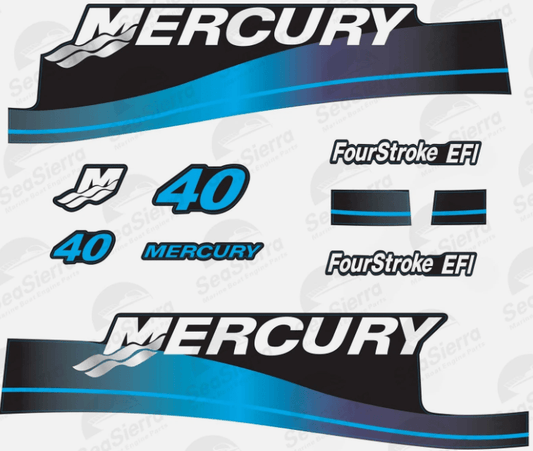
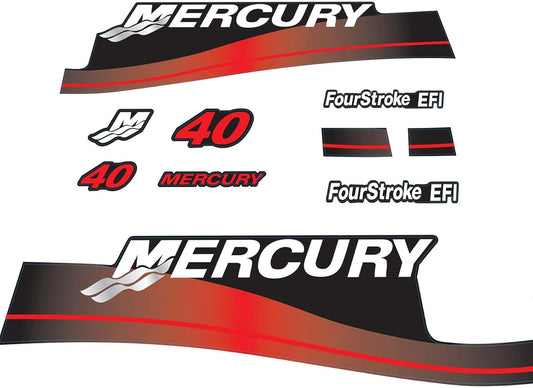
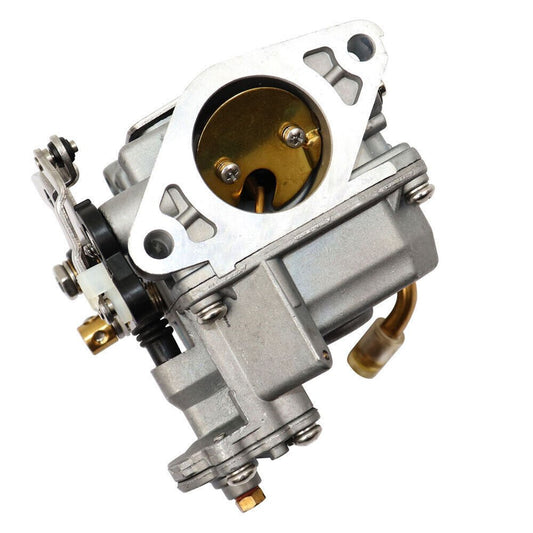
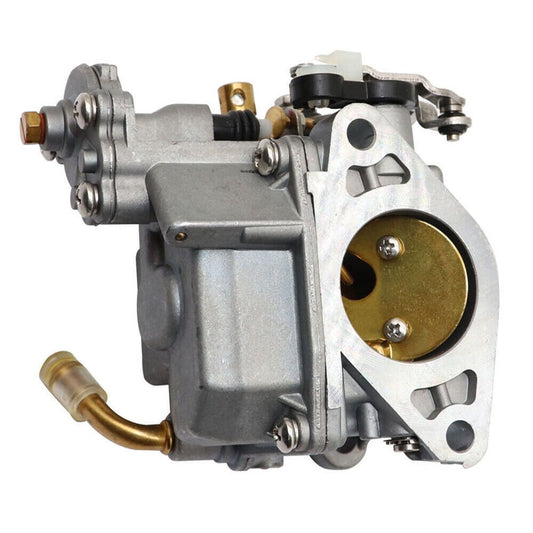
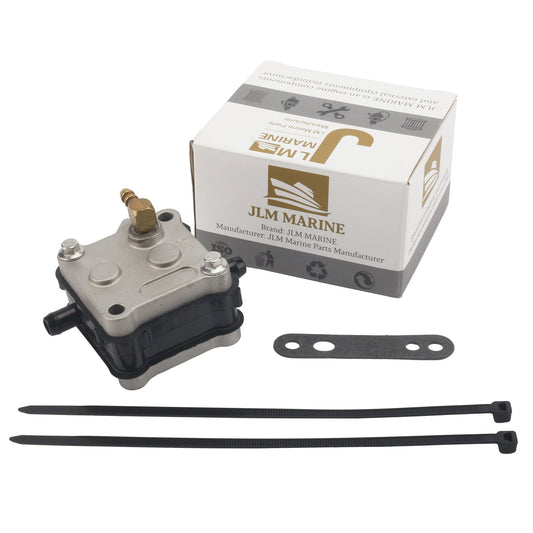
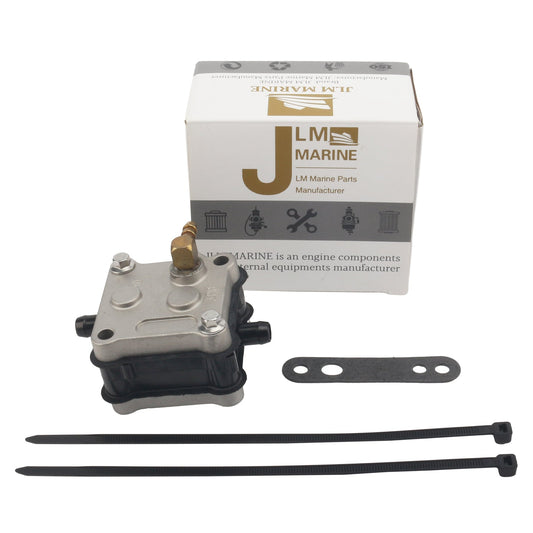
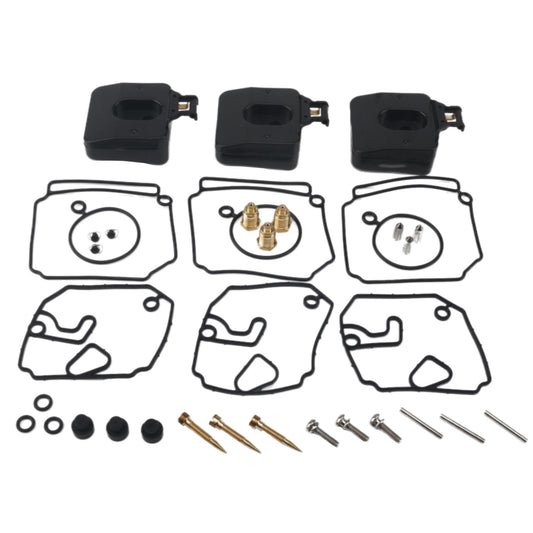
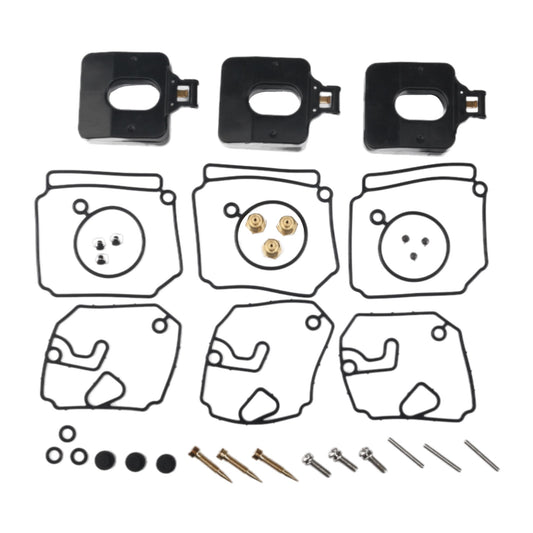
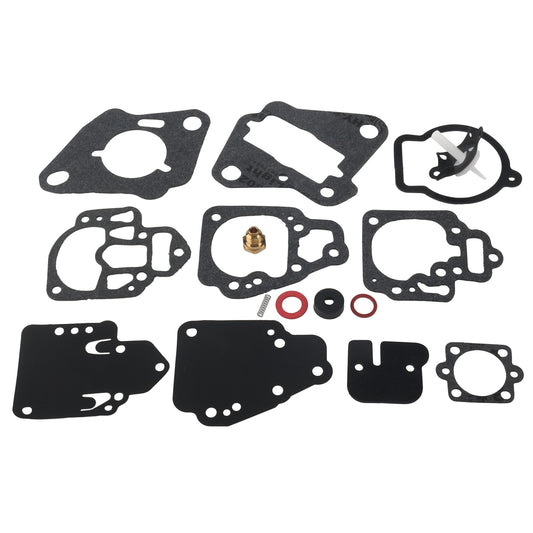
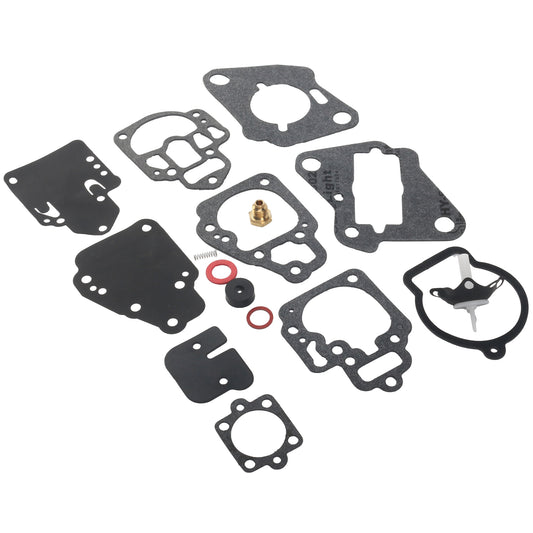
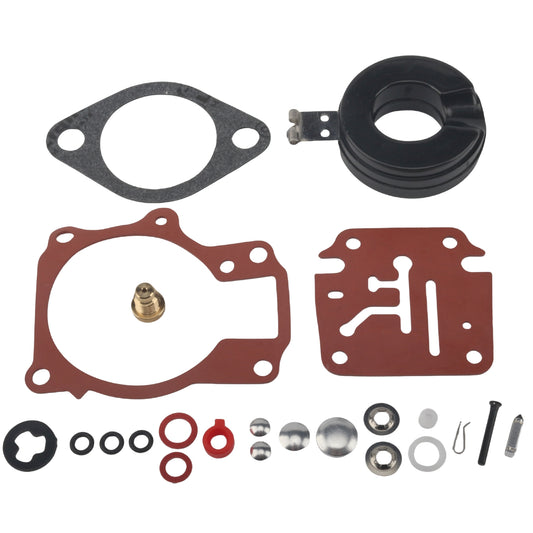
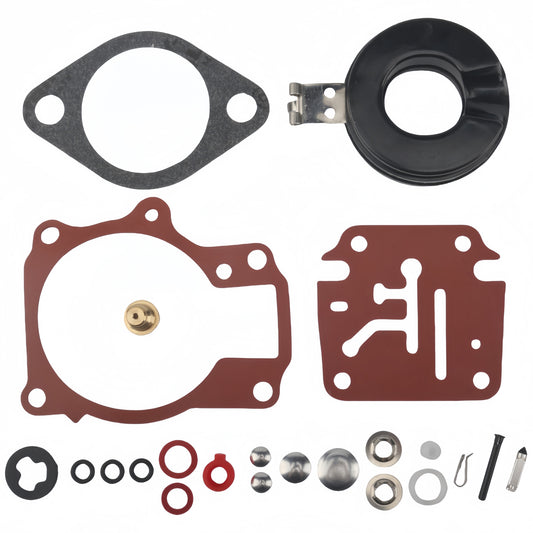







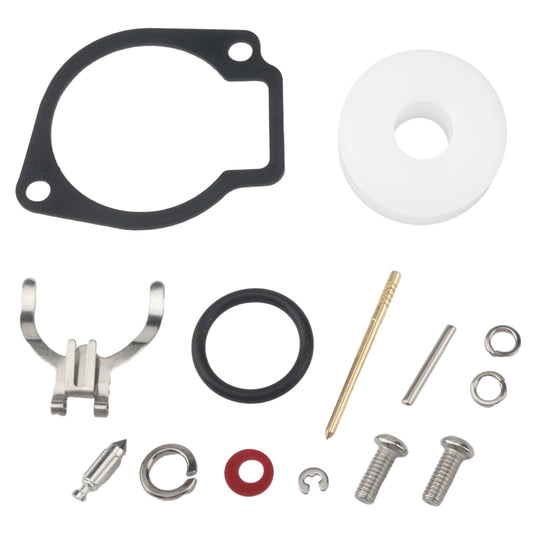
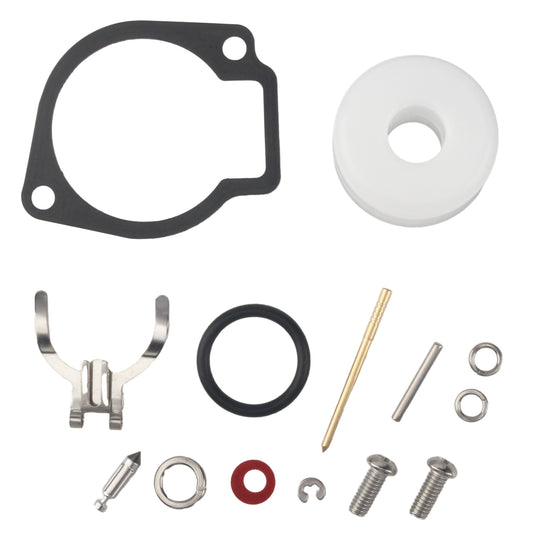
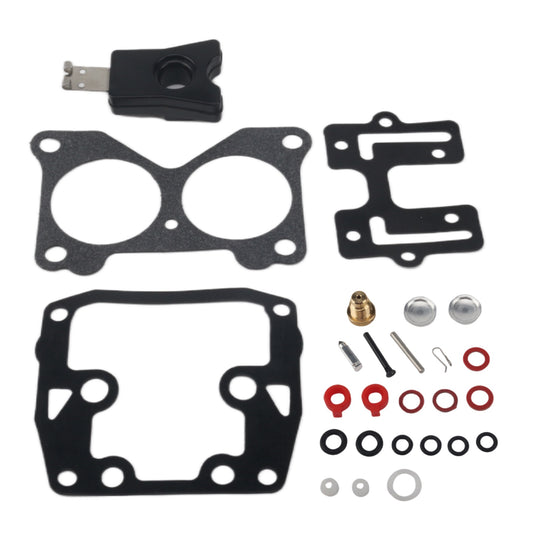
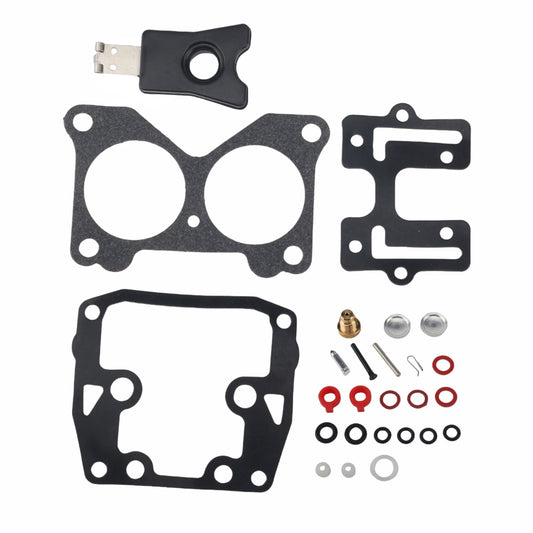
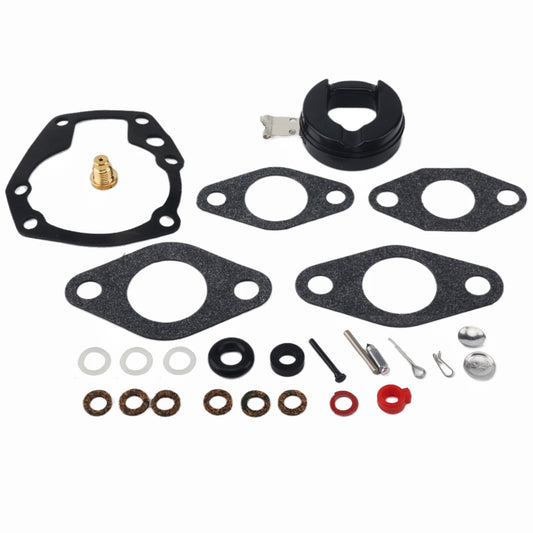
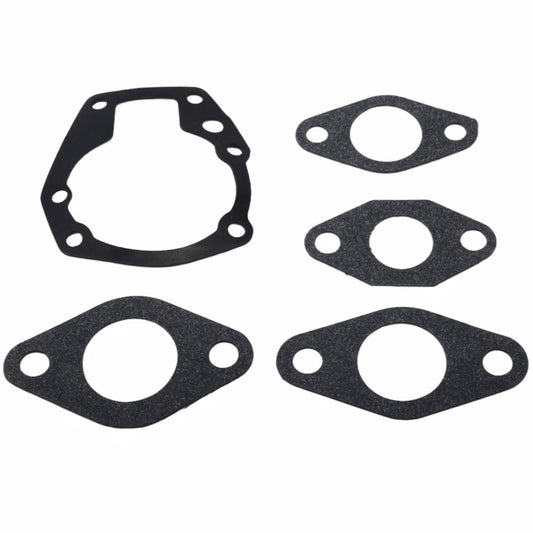
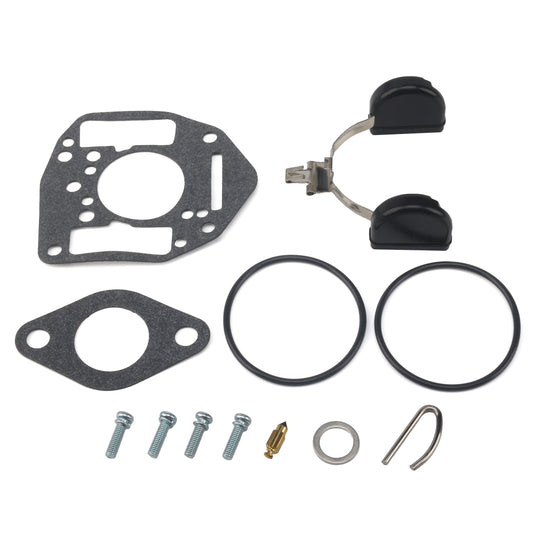
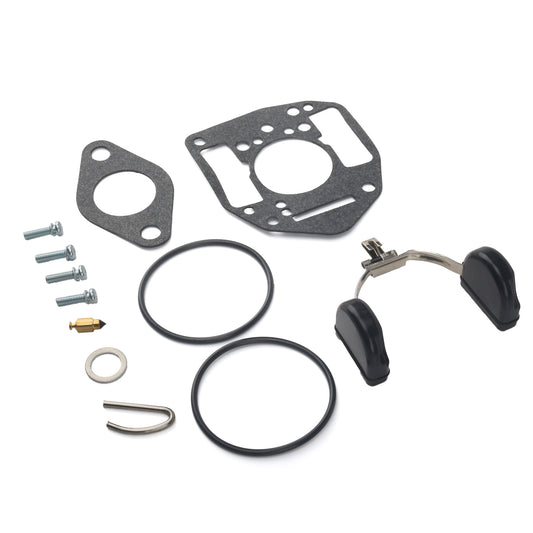
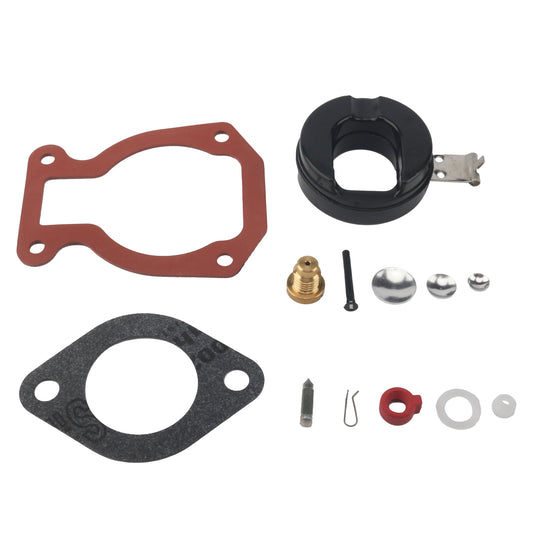
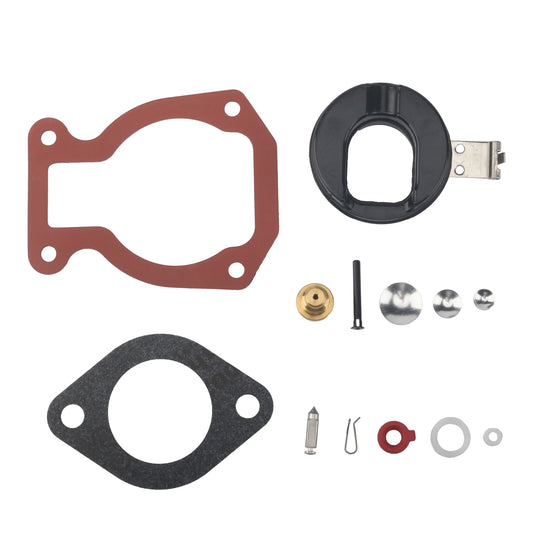
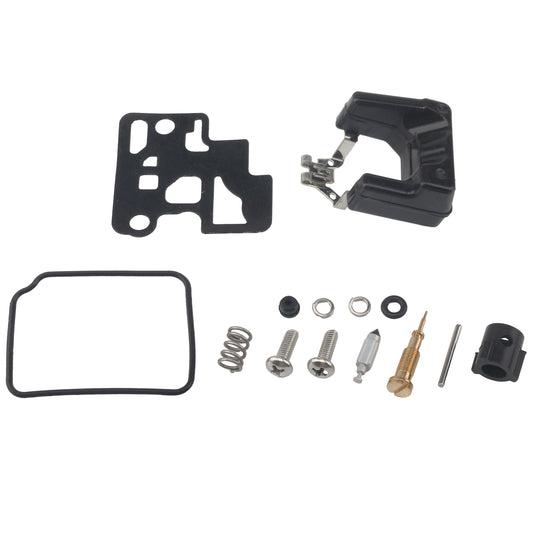
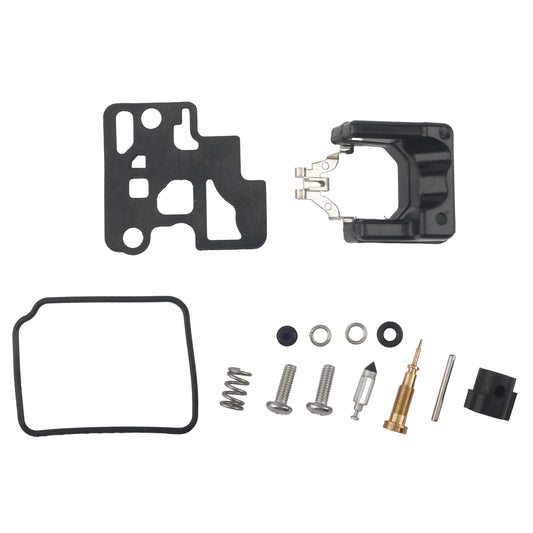
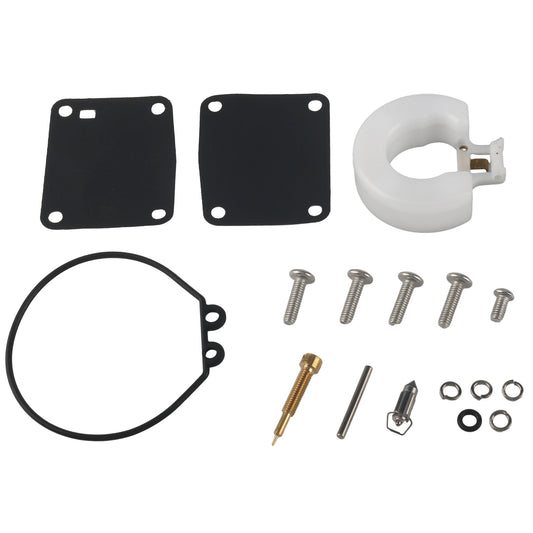
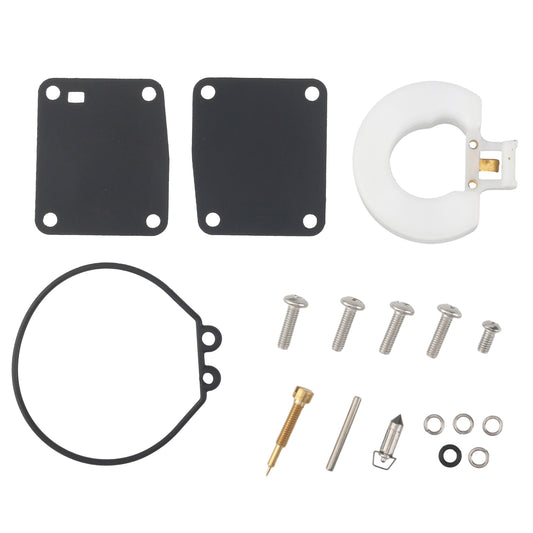
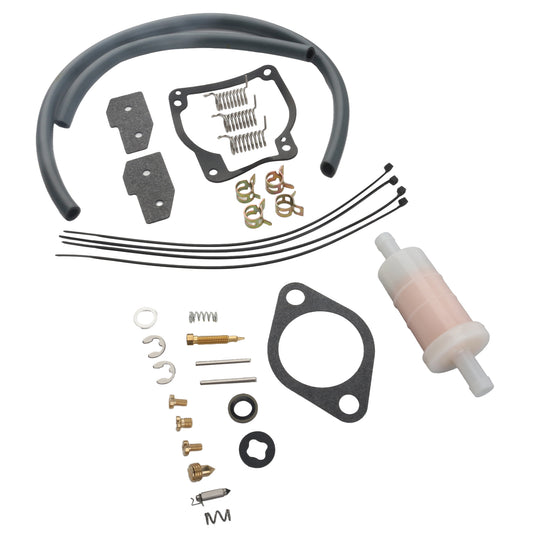
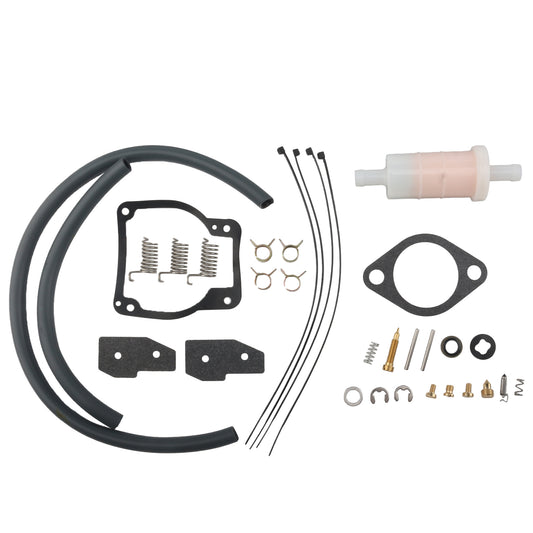
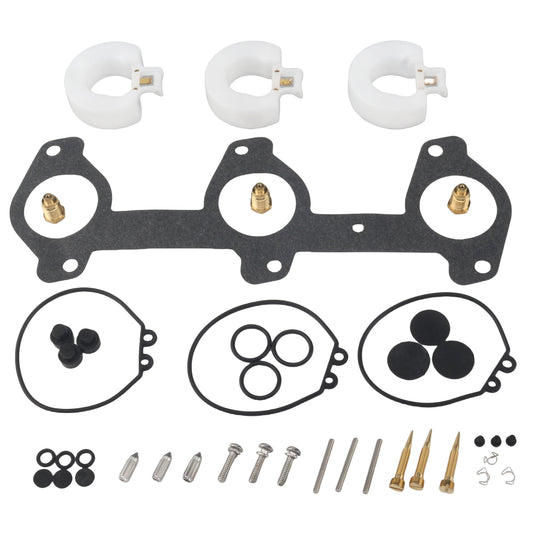

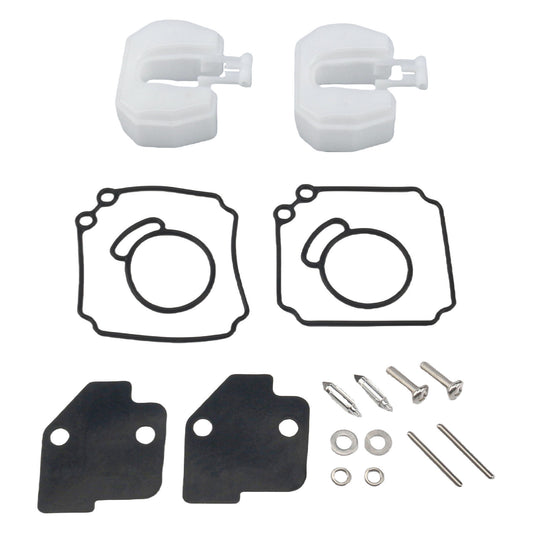
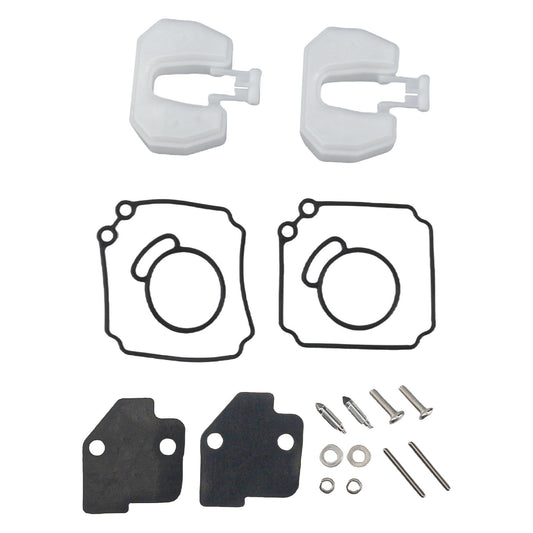

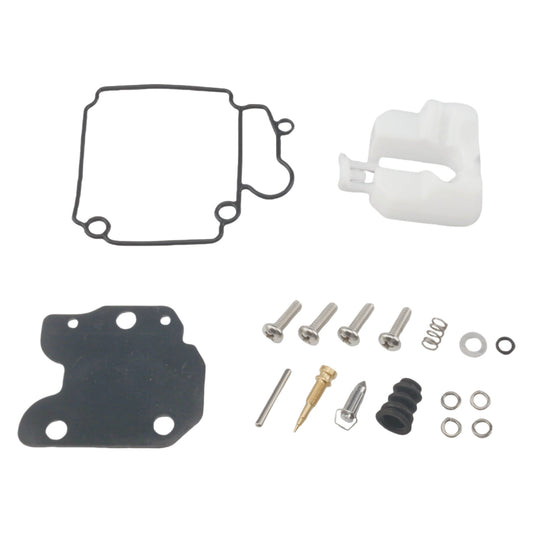
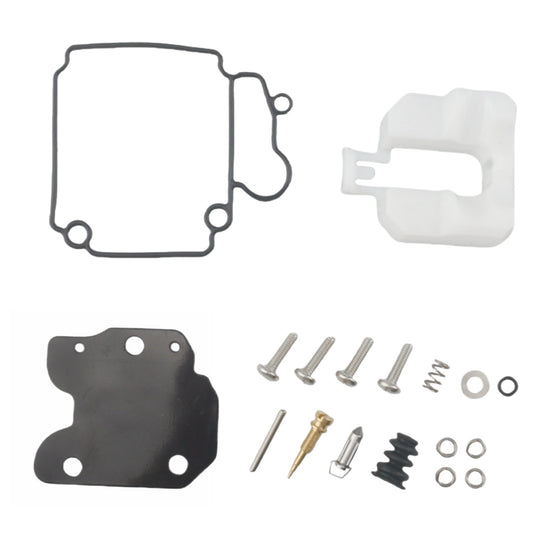
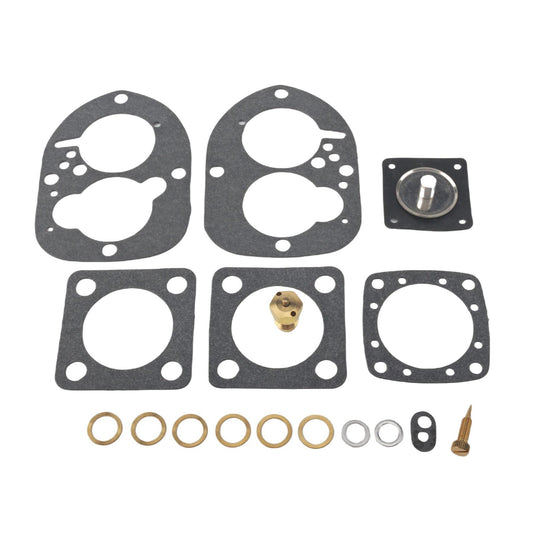
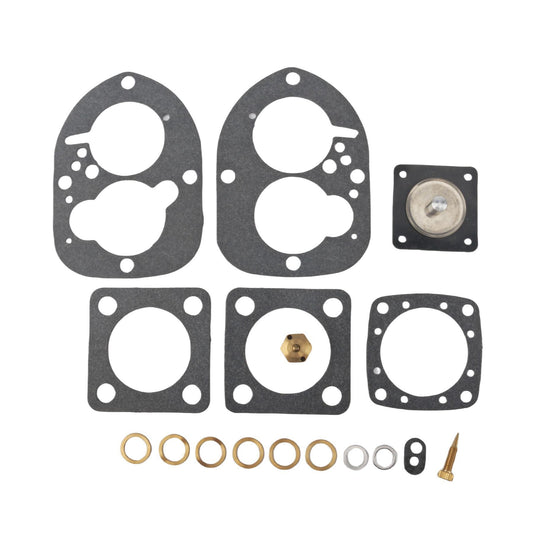
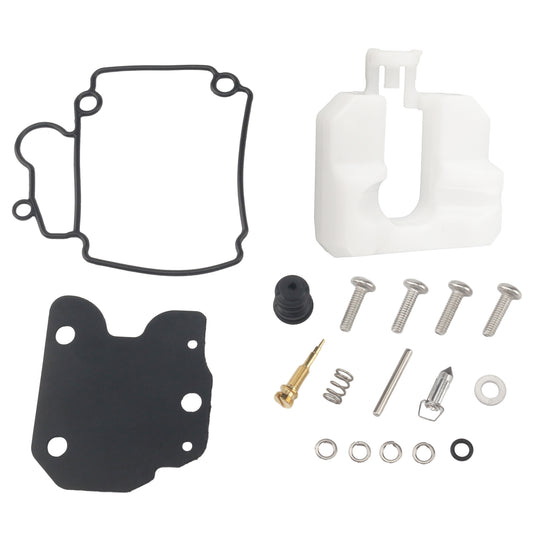
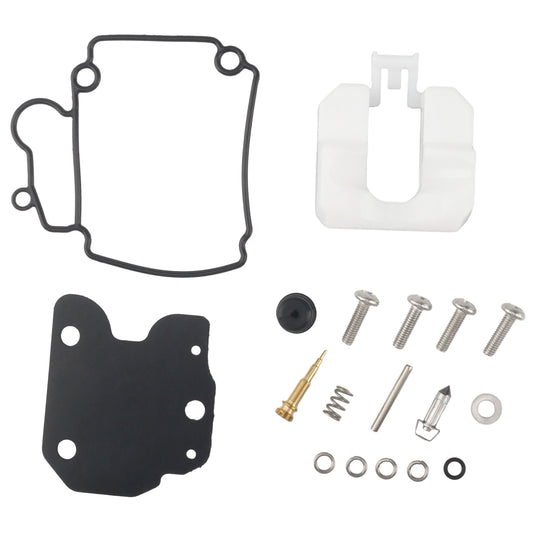
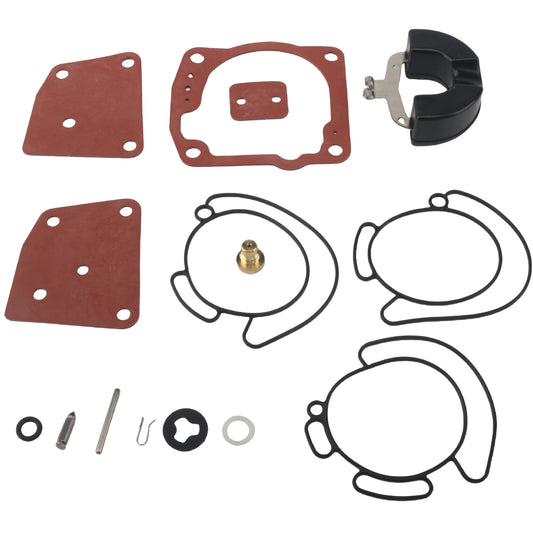
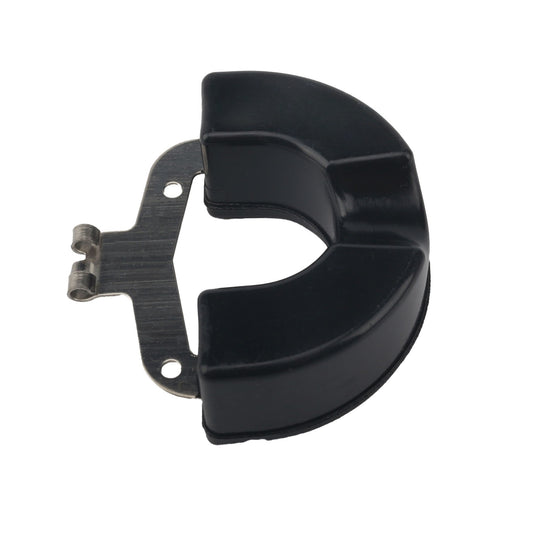


Leave a comment
Please note, comments need to be approved before they are published.